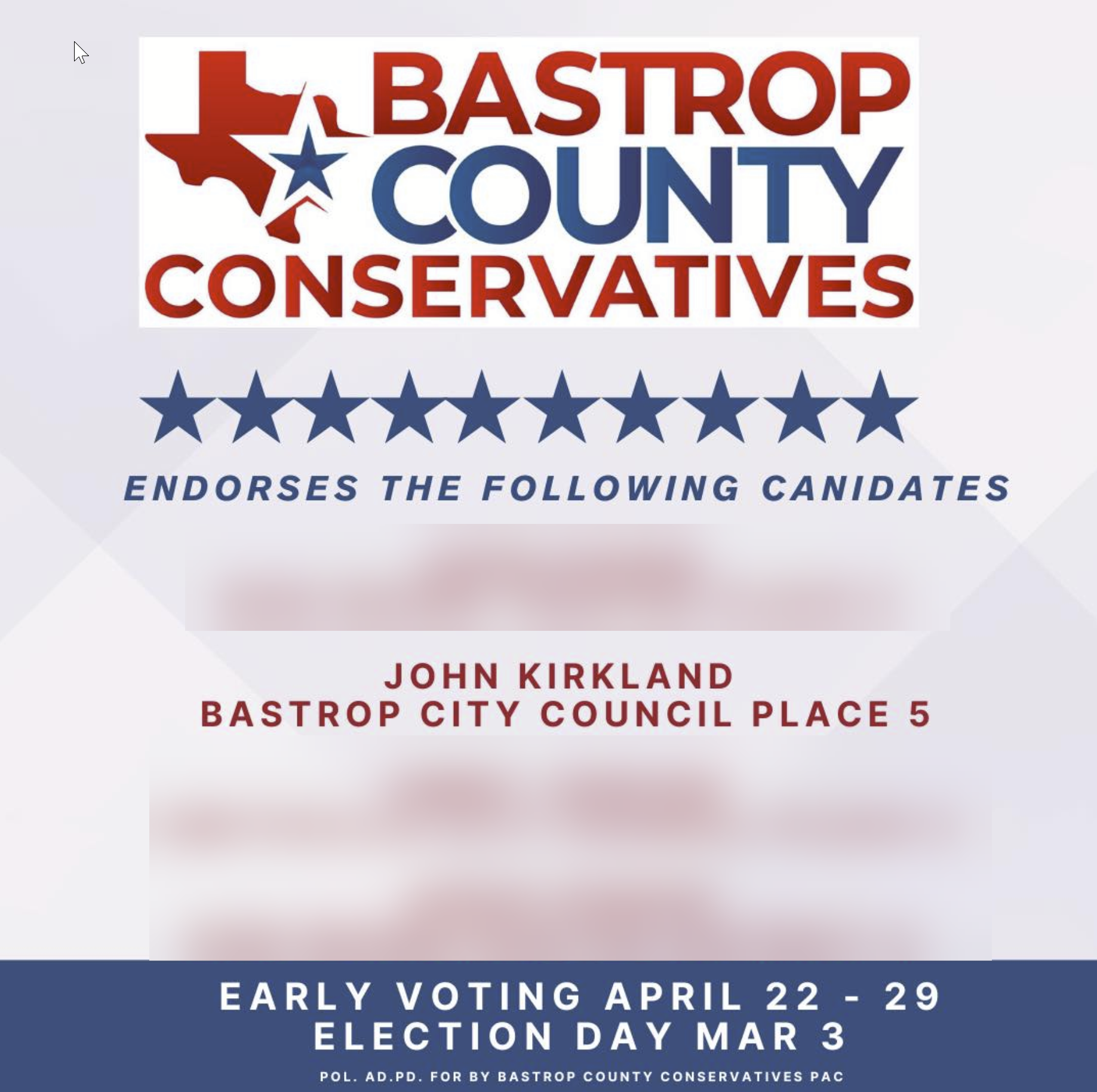I’m ADAMANTLY opposed to subsidizing the movie industry. That bill is SB-22 and it’s on Sunday’s calendar in the Texas House. As we in Bastrop well know, they’re coming here without that subsidy.
 If I wanted to support the movie industry, I’d go to movies. Think “user fees”. If I use it, I pay. I don’t go to the movies, so why am I being forced to pay for them?
If I wanted to support the movie industry, I’d go to movies. Think “user fees”. If I use it, I pay. I don’t go to the movies, so why am I being forced to pay for them?
I’m really sick of government forcing people to pay for that which they don’t use or need. Think DOGE. The Feds are trying to cut out excess spending and the State of Texas just spends more and more and more on things like this… everyone’s pet project. Just where is this in the Texas Constitution? Picking government winners (in this case, the movie industry) and losers (in this case, the taxpayers) needs to STOP.
My daughter told me a few years ago that one of the best lessons I taught her, one that has allowed her to save, is to understand the difference between wants and needs. Our legislators need to recognize the difference between wants and needs, between who is paying the bill and who is benefiting.
The movie industry is moving from CA anyway. Gavin Newsom is having a very hard time keeping them there, but he’s working hard at it. They’re expanding the CA subsidies. Will Texas have to do so in 2 years? This is nothing more than a race to see which state will give them the most money.
The old argument about all the jobs they’ll bring is a bunch of BS. No one ever talks about the other side of that equation: the COST of the growth that comes with them: roads, schools (have you seen the latest bond indebtedness of our schools???), WATER (we don’t have enough), infrastructure of other kinds, quality of life due to overcrowding.. The costs are massive, but those trying to sell this government waste ignore that.
Let those two multi-millionaires invest in their industry to encourage that industry to come here. I don’t go to movies and I don’t want to invest in them. I urge my rep, Stan Gerdes, and other House members to vote NO on SB22.
FOOD FOR THOUGHT ADDENDUM
Will we be paying for films glorifying the Muslim religion at the same time that the Governor and others are trying to stop the EPIC development near Dallas? “Faith-based” doesn’t mean just Christianity.
See this language in the bill:
(f) A moving image project qualifies for a faith-based moving image project grant under Subsection (a)(5) if the project is designated by the office as a faith-based moving image project according to rules adopted by the office. The office is not required to designate any moving image project as a faith-based moving image project and has sole discretion to make that designation.
One denial and a court case will follow. Texas will lose that court case. Does “faith-based” apply only to Christian films? Is it defined in Texas law? I couldn’t find it. I found “religious organization”, but not “faith-based”.
Religious discrimination is illegal. It’s how Mosques, Buddhist temples and any other “church” or “worship center”, Christian or non-Christian, are built anywhere in any zone. I know of 3 such situations that occurred in neighboring towns when I was in elected office in NJ. Under Federal law, they could not be stopped. One was in a former commercial building, another on a large open tract of land, and the third in a residential neighborhood.
When any bill calls for “faith-based”, think long and hard about whether you’d want the provisions of that bill applying to other than Christian religions. Because this is the Bible-belt, I think that Texans too often think only of Christianity. But that’s not the case under Federal law. Substitute any religion you are adamantly opposed to in place of “faith-based” in the bill and decide if you’d still support it. Food for thought.
 In late 2023, Festival de la Cultura, Inc. requested a $25,000 taxpayer funded donation from the City of Bastrop. On October 24, 2023, just five days after the corporation was registered with the State of Texas and one day after the corporation applied (but was not yet approved) for IRS non-profit status, John Kirkland seconded a motion to give Cooper’s corporation $25,000 in taxpayer funded money. It was unanimously approved and check number 152230 was cut to Cooper’s corporation on October 27. (For more details on this transaction, read my blog post
In late 2023, Festival de la Cultura, Inc. requested a $25,000 taxpayer funded donation from the City of Bastrop. On October 24, 2023, just five days after the corporation was registered with the State of Texas and one day after the corporation applied (but was not yet approved) for IRS non-profit status, John Kirkland seconded a motion to give Cooper’s corporation $25,000 in taxpayer funded money. It was unanimously approved and check number 152230 was cut to Cooper’s corporation on October 27. (For more details on this transaction, read my blog post 
 Cooper‘s LLC gets $25,000 of taxpayer money with Kirkland‘s second-on-the-motion and vote. A few months later, Cooper sends an email calling for Nelson’s resignation (yet he never sent such an email calling for
Cooper‘s LLC gets $25,000 of taxpayer money with Kirkland‘s second-on-the-motion and vote. A few months later, Cooper sends an email calling for Nelson’s resignation (yet he never sent such an email calling for 






